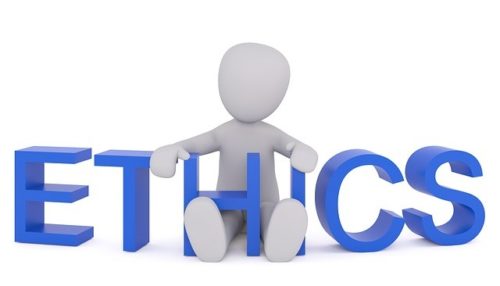-
Marriage Equality in the Crosshairs: Estate Planning Protections amidst Targeted Discrimination
-
Macro Cross Border Planning Challenges Related To The LGBT Community In this timely, and compelling CLE program attorney, Angela D. Giampolo, presents Macro Cross Border Planning Challenges Related To The LGBT Community. Attorney Giampolo begins the program with an overview of LGBT immigration in the united states. The program continues with an international discussion of LGBT immigration. The program concludes with an explanation of LGBT estate planning and marriage concerns. This program is a must listen for any attorney.
-
Philosophy of a Business Legal Counselor In this timely, and compelling CLE program attorney, Todd Kulkin, presents “Philosophy of a Business Legal Counselor”. The program begins with an overview of business law philosophy and an explanation of various business models. The program continues with an introduction to the popular and effective business models. Mr. Kulkin then provides a discussion of how to determine liability and business intake. The program concludes with the importance of scalability and presenting risk. This program is for any attorney involved in business or has clients who are involved in business. Agenda
- Philosophy of Business Law Corollaries
- Business Models 101
- Introduction to popular business models
- Determining liability from a business model
- Business intake
- The importance of scalability
- Presenting risk
-
Impaired Lawyers: A Call for Action - Description During this timely, and compelling CLE program Attorney, Brian Quinn, presents “Impaired Lawyers: A Call for Actions”. Mr. Quinn begins the program with an overview of statistics and warning signs of substance abuse. The program continues with an explanation on why lawyers are impacted and the barriers lawyers confront in seeking help. Attorney Quinn also discusses the stigma with seeking help, dealing with denial, and issues with enabling. The program concludes with how attorneys can seek help. This program is a must for any attorney. Agenda
- Statistics Overview
- Warning Signs at Law Firms
- Why Lawyers?
- Barriers to Seeking Help
- Stigma
- Dealing Denial
- Enabling
- Seeking Help
-
Covid-19: Business and Asset Protection A coronavirus-induced recession is no longer avoidable—it is happening right now. Each recession brings with it declining sales, job losses, falling rents, and defaults on loans and leases. When a crisis hits, getting a head start matters and those who have prepared will fare better than those who have not. This engaging presentation on protecting assets from plaintiffs, lenders, creditors and the government will cover lessons learned from the financial crisis of 2008 that we can apply to 2020, what businesses can do now to transition into the recession, and how companies and individuals can protect their assets from litigation and creditor threats. The instructor will share real-life stories and anecdotes, and will present a very practical approach to protecting assets. The discussion will also cover asset protection planning in a troubled economy, focusing on protecting assets from lenders and landlords and how to plan after a lawsuit, a default or an accident. Agenda:
- Debt Collection
- Fraudulent Transfers
- Entity Planning
- Choice of Entity
- Planning with Trusts
- Foregin Trusts
- Retirement Plans
- Examples
-
How Marijuana Use Can impair an Attorney’s Ability to Perform Legal Services with Competence: The Mental, Physical, Addictive, and Impairing Side Effects Many attorneys have not heard how much stronger marijuana is today. In this timely presentation, Heidi will provide basic information about the new high potency products. By understanding the side effects these new products present, a lawyer can recognize the warning signs and reduce his/her risk for addiction, mental illness and impairment. Heidi Anderson - Swan’s brother was a homeless drug addict with schizophrenia who went to jail eighteen times. In this CLE, she will begin by sharing their personal stories. She will continue with up-to-date information about the risks of marijuana use every lawyer should know. Agenda -Heidi & Kirk: Occasional User and Chronic User of 1970’s Pot -Marijuana and Psychosis/Schizophrenia, Anxiety, Depression, Bipolar Disorder, Suicide -How Weed Has Changed Since the 1970’s -High Potency Products: What Are They? What Are Their Side Effects? -How to Detect Warning Signs -Potential for Impaired Driving
-
Complex Trauma in Criminal Mitigation Cases: How Abuse and Neglect Cause Abnormal Development
Many criminal defendants have suffered complex trauma that must be explicated through presentence reports by mitigation experts. This seminar will focus on major approaches to conceptualize the harm that many of our clients have suffered in childhood and a developmental perspective focusing on the effects of abuse and neglect. The seminar will also consider how these matters are assessed in a psychosocial evaluation and major psychopathology that results from complex trauma.
Learning Objectives:
- Identify the ACE criteria in the context of complex trauma.
- Understand a developmental perspective of abuse and neglect in the context of complex trauma.
- Understand how psychosocial evaluations by mitigation experts consider complex trauma.
- Understand the major areas of psychopathology that result from complex trauma.
-
Talc Litigation: Cross-examination of a Lung Cancer Plaintiff
-
The Federal False Claims Act: Enforcement and Recent Updates The session will provide an overview of the Federal Civil False Claims Act (FCA) and how it works. It will also provide an assessment of enforcement activities, showing how healthcare providers may be at risk. In addition, the session will review recent cases and show how they potentially impact healthcare providers. We will start with a review of the Federal False Claims Act and discuss how it works and how it is being used to fight health care fraud. We will discuss how the various health care fraud task forces use the Federal False Claims Act and its whistleblower provisions to identify and prosecute health care fraud. The webinar will take the Federal False Claims Act apart and show step by step how an action is filed, how the government responds and how the courts interpret various elements of the Act. We will discuss proof, damages under the Act and how the whistleblower is rewarded for bringing a successful case. The session will also provide an overview of the Anti-Kickback Statute (AKS) and review what it prohibits, as well as a general review the AKS available safe harbors. It will also show how violation of the AKS can raise FCA concerns, and it will provide an assessment of enforcement activities, showing how participants may be at risk. In addition, the session will review recent cases and show how they potentially impact participants. We will provide an in-depth review of the AKS, focusing on what is prohibited under the Act and what the exceptions are. We will also review the case law, particularly the early case law that sets the stage and basis for how the courts interpret the law. We will also review the changes made to both the False Claims Act and the Anti-Kickback Statute made by the Affordable Care Act. Finally, the webinar will review various cases to show how easy it is to run afoul of the Statute, and how the courts view compliance with it. In addition, we will discuss the latest updates to both the False Claims Act and the Anti-Kickback Statute.
-
Georgia 6 Credit Bundle with Ethics- All Courses Approved in Georgia Bundle Courses Include: Opening Statement As a Story - 101 (1 Credit) Opening Statements As a Story - 102 (1.5 Credits) Anatomy of a Civil Tax Controversy (1.5 Credits) Fair Debt Collection Practices Act (1 Credit) Effective and Ethical Use of Experts (1 Ethics Credit)
-
Oklahoma 7.5 Credit Bundle with Ethics - All Courses Approved in Oklahoma Bundle Courses Include: NCAA & Name, Image, Likeness – Updates & Anarchy in America! (1.5 Credits) Closing Arguments (2 Credits) Anatomy of a Civil Tax Controversy (2 Credits) Order in the Court: Ethical Interaction With Judges (1 Ethics Credit) Effective and Ethical Use of Experts (1 Ethics Credit)
-
Vermont 10 Credit Bundle with Ethics Courses Include: Managed Services: The Basics (1.10 Credits) Talc Litigation: A Primer (1.12 Credits) Second Circuit Court of Appeals: Practice and Procedure (1.03 Credits) Criminal Procedure in a Felony Case (1.52 Credits) Macro Cross Border Planning Challenges Related To The LGBT Community (1.0 Credits) Marriage Equality in the Crosshairs: Estate Planning Protections amidst Targeted Discrimination (1.05 Credits) Preparing Clients for Deposition: An Investment in Performance (1.2 Credits) Who’s in Charge? The Ethic of Listening, and Not Listening, to Clients (1.05 Ethics Credits) Ethics of IRS Enforcement (1.07 Ethics Credits)
-
New Hampshire 2 Credit Ethics Bundle Courses: Anti Money Laundering for Business Lawyers (1 Credit) Entity Formation 101 (1 Credit) Athlete Agency Law (1.25 Credits) Banking for the Non-Banking Attorney (1.5 Credits) Copyright for Artists (1.5 Credits) How to Cross Examine a Medical Witness (1 Credit) Principles of a Successful Jury Trial (1 Credit) Ethically Keeping Your Clients Trust Even When Things go Wrong (1 Ethics Credit) Preparing Clients for Deposition: An Investment in Performance (1 Credit) Cannabis Law (1 Credit) Ethics of Business Law (1.25 Ethics Credit)
-
"Shackled to Our Screens: How Technology Has Imprisoned the Legal Profession"
-
Taking Off the Gloves: What to Expect in U.S. Tax Court
-
How the IRS Reconstructs Income in Tax Fraud Cases
-
Dealing with the Disruptive Practitioner in a Legally Compliant Manner
-
The Healthcare Quality Improvement Act: How to Achieve Immunity in Your Peer Review Process
-
Physician Employment Agreements: Problem Areas that can be Landmines
-
Paying for Referrals: A Danger to the Payor and Recipient's Freedom.
-
Order in the Court: Ethical Interaction With Judges Lawyers have a duty to uphold ethical standards while zealously advocating for their clients. But where is the line when it comes to challenging judges and their rulings? This program will explore the ethical rules that govern a lawyer's interaction with judges both in and out of the courtroom, using real-life examples and cases as illustrations. It will delve into the ethical considerations of not only what lawyers can say to judges in the courtroom, but also what they can say about them in the court of public opinion. This course will provide a thorough analysis of contemporary courtroom dynamics between attorneys and judges, as illustrated by case law, rules of professional conduct, as well as recent high-profile cases. It will discuss the ethical dilemmas that attorneys face in attempting to gain the best advantages for clients, while adhering to the boundaries of applicable ethical and legal standards. Agenda
- Introduction to the importance of ethical considerations in a lawyer's interaction with judges
- Exploration of ethical rules that govern a lawyer's interaction with judges in and out of the courtroom
- Analysis of ethical considerations for what lawyers can say to judges in the courtroom and in the court of public opinion
- Examination of contemporary courtroom dynamics between attorneys and judges through case law, rules of professional conduct and high-profile cases
- Discussion of ethical dilemmas that attorneys face in attempting to gain the best advantages for clients within the boundaries of applicable ethical and legal standards
-
Effective and Ethical Use of Experts One of the most important issues lawyers face in preparing for trials and other hearings is whether or not to retain an expert. This program will cover the range of topics and issues that would benefit from expert testimony, including the relevant legal issues and arguments, as well as how to prepare your expert to take the stand. It will also cover what should factor into the decision as to whether to retain an expert for consultation purposes only, or also to testify in court. This program will cover applicable ethics rules and standards that apply to using expert witnesses. It will include the ABA Model Rules, Ethics Opinions, the ABA Criminal Justice Section Standards, and applicable case law. Issues range from compensation, to independence of opinion, to potential conflict of interest, to manner of testifying. This program will also cover preparing an expert to testify, including how to tailor the method and manner of testimony to the facts of your case. Because jurors do not appreciate (or understand) an expert who speaks in industry-specific jargon from an ivory tower, this program will cover how to humanize your expert. In covering this important interpersonal angle, it will present discuss the results of research studies investigating juror perception of expert witnesses. Agenda:
- Introduction to the importance of considering ethical expert testimony in legal proceedings
- Overview of ethical legal issues and arguments that benefit from expert testimony
- Discussion of ethical factors to consider when deciding whether to retain an expert for consultation or testimony
- Explanation of applicable ethics rules and standards for using expert witnesses, including ABA Model Rules, Ethics Opinions, Criminal Justice Section Standards, and relevant case law
- Discussion of compensation, independence of opinion, potential conflicts of interest, and manner of testifying in ethical manner
- Ethical Techniques for preparing an expert to testify, including tailoring testimony to the facts of the case
- Ethical Strategies for humanizing an expert and avoiding industry-specific jargon
- Ethical Presentation of research studies on juror perception of expert witnesses
-
Technology & Bias Spreading It And Stopping It The provided materials cover a wide range of topics related to bias and strategies for addressing it. The first piece delves into the definition of bias as an unfair treatment or policy based on prejudice, and its implications in the realms of employment and public services. Another item explores Elimination of Bias Requirement, which encourages lawyers to confront and overcome their own biases in order to combat systemic discrimination. A third piece distinguishes between conscious and unconscious biases, highlighting the prevalence and potential negative impact of the latter. The fourth material focuses on the role of artificial intelligence in either perpetuating or mitigating bias in a variety of domains, including language, hiring, and evaluation. Finally, an additional resource emphasizes the potential for bias to arise when technology is not utilized, particularly in the context of age discrimination. AGENDA: 67 Minutes 5-15 minutes: Overview of the provided materials on bias and combating it 10-25 minutes: The first section, which defines bias as an unfair act or policy stemming from prejudice, which can manifest in employment and public services 25-40 minutes: The second section, which discusses the goal of Elimination of Bias Requirement and aims to get lawyers to recognize and fight against their own internalized biases that may contribute towards systemic discrimination 40-50 minutes: The next section, which distinguishes between conscious and unconscious biases, with the latter being more prevalent and often incompatible with one's conscious values 50-60 minutes: The fourth section, which covers the role of artificial intelligence in perpetuating or preventing bias in various domains, such as language, recruitment, and assessment 60-67 minutes: The fifth section, which highlights the bias that can occur from not using technology, particularly in the case of age discrimination.
-
Unauthorized Practice of Law: Ethical Dilemmas and the Rule of Law Unauthorized practice of law, or UPL, refers to the practice of law by individuals or entities who are not authorized to do so. The purpose of regulating UPL is to ensure that only licensed attorneys are able to provide legal services to the public, thereby preserving the integrity of the legal profession and protecting the public from harm. However, tensions can arise when consumers require legal services that they perceive as too expensive if provided by a licensed attorney or firm. This course explores the complexities of UPL, including the balancing factors that states use to address these issues. It also examines various situations where non-lawyer entities may pose a risk to the public, and how lawsuits have been used to limit or curtail their activities. By understanding the risks and challenges associated with UPL, legal professionals can take steps to safeguard the public and ensure the continued value of licensing and ethical controls such as Bar Associations and Court systems. AGENDA
- Defining Unauthorized Practice of Law
- Discuss what constitutes unauthorized practice of law
- Explain why regulating UPL is necessary
- Balancing Consumer Needs and Protecting the Public
- Discuss the tension between consumers' need for affordable legal services and protecting the public from harm
- Explore how certain states have attempted to balance these needs through legislation and regulations
- Examine situations in which non-lawyer entities have posed a risk to the public
- Discuss examples of lawsuits and other measures taken to limit or curtail these activities
- Legal and Ethical Controls
- Discuss the role of Bar Associations and Court systems in regulating the legal profession
- Explain how these entities help to ensure ethical and professional conduct among lawyers
- UPL and Technology
- Discuss how technology has impacted the unauthorized practice of law
- Explore the challenges and opportunities presented by technology in regulating UPL
- Enforcement of UPL Regulations
- Explain how UPL regulations are enforced
- Discuss the challenges and limitations of enforcement
- Examine case studies of UPL incidents and their outcomes
- Discuss what can be learned from these incidents
- Discuss the potential evolution of UPL regulation in the future
- Highlight emerging trends and challenges in regulating UPL
- Best Practices for Lawyers
- Discuss best practices for lawyers to avoid UPL violations
- Explain the consequences of UPL violations for lawyers
- Best Practices for Consumers
- Discuss best practices for consumers to avoid UPL risks
- Explain how consumers can ensure they are working with licensed attorneys
-
Help for the Helper: The Effects of Trauma and Compassion Fatigue on the Lawyer Who Cares Many of us were attracted to the legal profession because we care about people and want to help them. Attorneys hopefully recognize that, unlike many other professionals, their lives are already filled to the brim with anxiety and stress.The consequences of shrugging it off can be catastrophic. One of those consequences that we often hear about is burnout. And then there’s a special type of burnout called “secondary traumatic stress” or “compassion fatigue”. The ramifications of trauma and compassion fatigue aren’t discussed as frequently as those of stress and burnout thus, for many attorneys, they are topics in need of attention. Secondary or vicarious trauma can be the cumulative effect of listening to a client or witness relay graphic stories and experiences. Those who experience compassion fatigue tend to take on the pain, suffering and burdens of the people they are helping. It is an exhaustion that is felt physically, emotionally or mentally and can affect numerous areas of your life, often leaving you feeling numb. Recent studies have shown that there has been a dramatic increase in impairment due to alcoholism, addiction and mental health disorders among members of the legal profession. The statistics are compelling and clearly indicate that 1 out of 3 attorneys will likely have a need for substance use or mental health services at some point in their careers. Mr. Quinn will discuss: 1. The early warning signs of impairment, with special emphasis on stress, burnout, trauma and compassion fatigue. 2. The free services that Lawyers Assistance Programs provide to lawyers, judges, their family members and law students. 3. A close look at what barriers exist that prevent lawyers and judges from seeking the help they need will be provided. 4. The role that education plays in breaking the stigma and fear associated with addiction and mental illness in the legal profession. 5. How best to approach the impaired individual.
-
Information Law Firms Collect and Store – What to do in the Event of a Cyber Breach? When storing information, it can be done on paper or digitally on personal/shared computers, systems, files, or vendor applications. Regulatory requirements like state laws, GLBA, FERPA, GDPR must be considered. Plan and risk assessments, encryption, and access controls are used to support compliant environments. Protocols for breaches, legal holds, and employee changes must be put in place. Third-party vendors and outsourced staff must be considered. In case of a breach, notifying insurance carriers, healthcare providers, finance entities, schools, and individuals affected is crucial. AGENDA:
- Introduction to information storage
- Paper vs. digital storage
- Personal and shared computer storage
- System, files, and vendor application storage
- Regulatory requirements, including state laws, GLBA, FERPA, GDPR, and BAAs
- Risk assessments, plan development, and encryption
- Tailoring privacy practices to company size and IT capabilities
- Outsourced staff and third-party vendor considerations
- Processes for sharing information via email or e-sign
- Protocols for managing breaches, legal holds, and employee role changes
- Access controls, including physical, administrative, and technical measures
- Response to breaches, including notifying insurance carriers, healthcare providers, schools, and individuals affected
-
Basics of Landlord/Tenant Law for Ohio
Discover the essentials of landlord/tenant law in Ohio with this concise course. Whether you're a landlord or tenant, gain insights into key topics such as lease agreements, security deposits, eviction procedures, and property maintenance. Learn about your rights and responsibilities under Ohio law to establish fair and harmonious rental relationships. Please note that this course provides an overview and should not be considered legal advice. Consult an attorney for specific cases or unique circumstances. Start your journey towards understanding Ohio's landlord/tenant law today!
Agenda:
-
Overview of Landlord/Tenant Law
-
Define landlord/tenant law
-
Discuss the importance of understanding the legal framework
-
-
Lease Agreements
-
Explain the key elements of a lease agreement
-
Discuss common terms and provisions
-
Highlight the significance of written agreements
-
-
Security Deposits
-
Describe the purpose and regulations surrounding security deposits
-
Explain procedures for handling and refunding deposits
-
Discuss legal requirements for documenting damages
-
-
Rent Increases
-
Explain the rules and limitations on rent increases in Ohio
-
Discuss proper notice requirements
-
-
Eviction Procedures
-
Outline the steps involved in evicting a tenant
-
Explain the legal grounds for eviction
-
Discuss the importance of adhering to proper procedures
-
-
Property Maintenance
-
Discuss landlord responsibilities for maintaining the rental property
-
Highlight tenants' rights to habitable living conditions
-
Address common maintenance issues and dispute resolution
-
-
Tenant Rights
-
Explain tenants' rights under Ohio's fair housing laws
-
Discuss protections against wrongful eviction and discrimination
-
Briefly cover privacy rights and access to the property
-
-
-
Pro Bono Representation: Help the Profession Help Others





